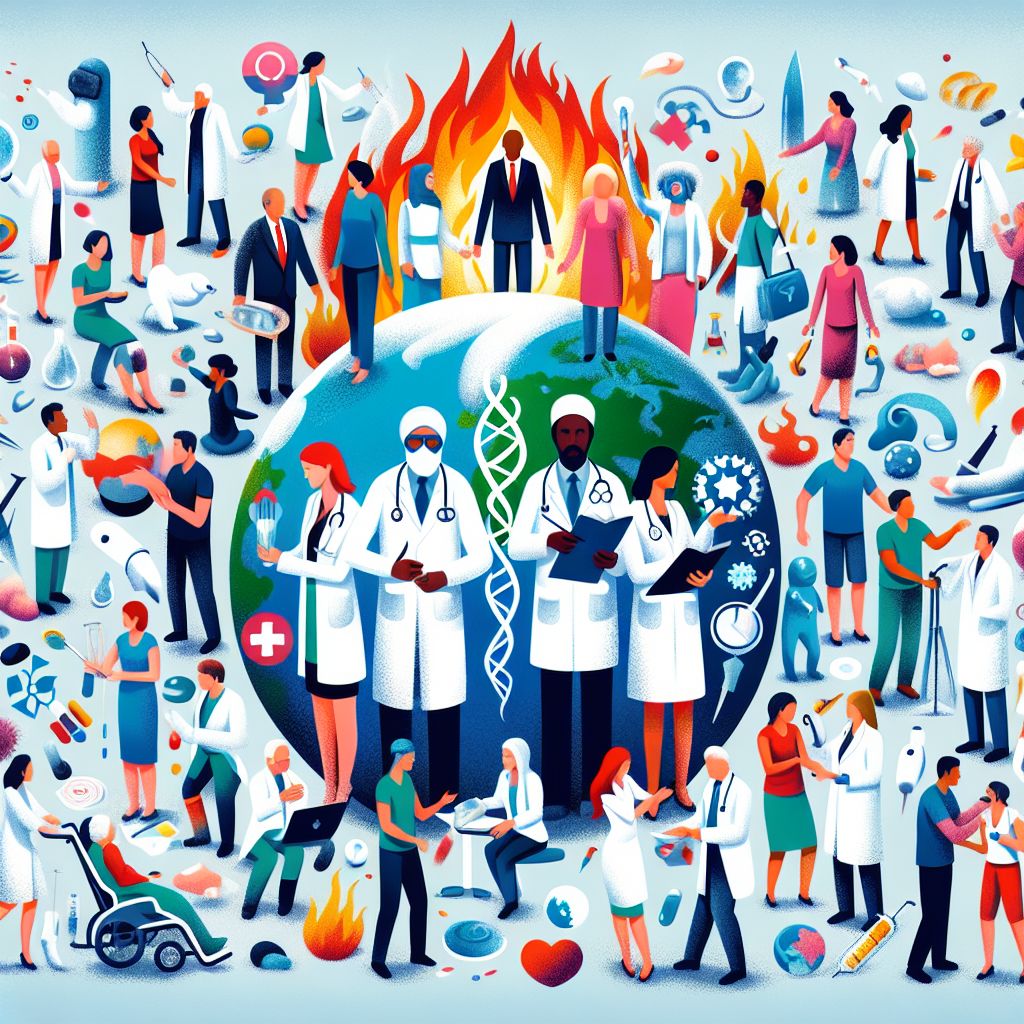Table of Contents
- Introduction: Climate Change – A Global Challenge, A Collective Responsibility
- Role of Developed Nations in Climate Change Mitigation
- Medical Professionals: Climate Change Advocates
- Medical Community’s Potential in Guiding Policy
- Adapting to the Health Impacts of Climate Change
- Conclusion: A Collective Call to Action
Introduction: Climate Change – A Global Challenge, A Collective Responsibility
The climate crisis is a global challenge that demands collective responsibility and decisive action. It is an issue that transcends borders and impacts all aspects of human life, including health. Developed nations, with their vast resources and influence, have a crucial role to play in mitigating climate change. Medical professionals, too, can contribute significantly to this cause. Their roles are significant for three compelling reasons: they can use their influence to promote sustainable practices, they can guide policy decisions by providing health-related data on climate change, and they can help communities adapt to the health impacts of climate change.
* Developed nations have the resources and influence to make substantial contributions to climate change mitigation.
* Medical professionals can use their expertise to guide policy decisions and help communities adapt to the health impacts of climate change.
Role of Developed Nations in Climate Change Mitigation
Developed countries, owing to their economic strength and technological advancement, have a significant influence on global policy and action related to climate change. They have the capacity to invest in clean, sustainable technologies, reduce greenhouse gas emissions, and contribute to global climate funds. They also have the responsibility to assist developing countries in their climate change mitigation efforts, through financial aid, technology transfer, and capacity building initiatives. By taking proactive measures, developed nations can set a precedent for other countries to follow, thereby accelerating global efforts towards climate change mitigation.
Medical Professionals: Climate Change Advocates
Medical professionals have a critical role to play in the fight against climate change. Their expertise and credibility make them powerful advocates for climate action. They can illuminate the health impacts of climate change, which can be a persuasive factor in influencing public opinion and policy decisions. Medical professionals can also drive sustainable practices within the healthcare sector, such as reducing waste and promoting energy efficiency. In doing so, they can contribute to both climate change mitigation and adaptation efforts.
Medical Community’s Potential in Guiding Policy
As experts on health, medical professionals can provide valuable insights into how climate change affects human health. They can conduct research to understand the correlation between climate change and diseases, such as vector-borne diseases, respiratory illnesses, and mental health issues. This data can inform policy decisions, enabling governments to implement measures that protect public health while addressing climate change. As trusted sources of health information, medical professionals can also educate the public about the health risks of climate change and promote preventive measures.
Adapting to the Health Impacts of Climate Change
Climate change has profound implications for human health, including increased risks of heat-related illnesses, malnutrition due to crop failures, and spread of infectious diseases. Medical professionals have a key role in helping communities adapt to these challenges. They can develop and implement strategies for disease surveillance and early warning systems, provide health services in climate-sensitive areas, and promote community resilience. Through these efforts, they can mitigate the health impacts of climate change and empower communities to adapt to a changing climate.
Conclusion: A Collective Call to Action
In conclusion, the fight against climate change requires collective action and responsibility. Developed nations, with their resources and influence, and medical professionals, with their expertise and credibility, have critical roles to play in this battle. By taking action now, they can mitigate the effects of climate change, protect public health, and ensure a sustainable future for all.
The onus is on governments, businesses, and individuals alike to take concrete steps towards climate change mitigation. Governments need to formulate policies that prioritize renewable energy sources, incentivize green practices, and impose stricter regulations on carbon emissions. Businesses can contribute by adopting sustainable practices, investing in renewable energy, and fostering innovation in green technologies. Individuals, on the other hand, can make a significant impact by making environmentally-conscious choices in their daily lives, such as reducing waste, reusing and recycling products, and opting for public transportation or carpooling.
Education is another key component in the fight against climate change. Schools, colleges, and universities should integrate climate science into their curriculum to raise awareness and foster a generation of environmentally literate citizens. Moreover, media outlets must also shoulder the responsibility of accurate and timely reporting on climate issues, to keep the public informed and engaged.
It is also crucial to collaborate on a global scale. Climate change is a global problem that requires a global solution. International cooperation can lead to the sharing of resources, knowledge, and technology, which can significantly accelerate efforts to combat climate change. The Paris Agreement is a prime example of how nations can work together to limit global warming and adapt to its effects.
In conclusion, while the threat of climate change is real and immediate, it is not insurmountable. With concerted efforts from all sectors of society and robust international cooperation, we can limit global warming, safeguard our planet, and secure a sustainable future for generations to come.
